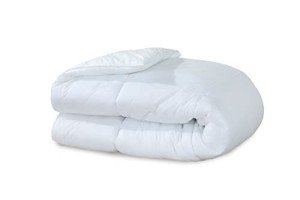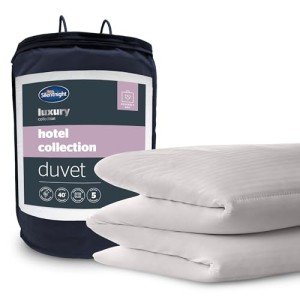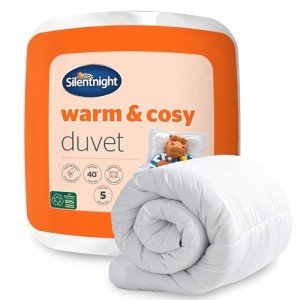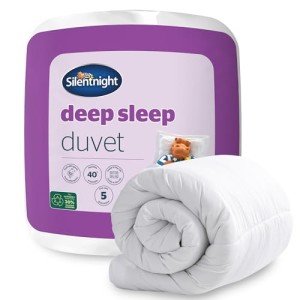As the temperatures drop and wintry chills set in, the quest for warmth becomes a priority in every household. For those with a single bunk bed, especially for children or for maximizing space in smaller rooms, the right duvet can make all the difference in ensuring a snug and restful sleep. This guide will provide an in-depth look at choosing the perfect cozy winter duvet for a single bunk bed, along with care tips, features to look for, and answers to some frequently asked questions.
Understanding the Importance of Duvets
A duvet not only provides warmth but also contributes to the overall aesthetic of a room. For a tucked-away bunk bed, the right duvet can transform a simple sleeping space into a cozy winter retreat. Consider these factors when choosing a duvet:
Key Features to Consider
-
Warmth: The primary purpose of a winter duvet is to provide insulation and warmth. Look for a duvet with appropriate filling and weight.
-
Material: The outer fabric can play a crucial role in durability and breathability. Choices typically include cotton, polyester, or blends.
-
Filling: Duvets can be filled with down, synthetic fibers, or wool. The filling will impact warmth, weight, and hypoallergenic features.
-
Size: Since the duvet will be for a single bunk bed, ensure you check the exact measurements to find a perfect fit.
-
Maintenance: Easy-care options such as machine washable and dryer-friendly can save time and effort, making life easier for parents.
-
Style: Duvets come in various designs and colors. Choose a duvet that complements the room's existing theme or color palette.
Recommended Cozy Duvets for Single Bunk Beds
Here is a list of some popular duvets that are perfect for winter:
| Duvet Name | Filling Type | Material | Warmth Rating | Price Range |
|---|---|---|---|---|
| CozyCloud Down Duvet | 100% Down | Cotton | 10/10 | £150 - £200 |
| WarmNest Wool Duvet | 100% Wool | Wool Blend | 9/10 | £120 - £180 |
| CloudSoft Synthetic Duvet | Synthetic Fill | Polyester | 8/10 | £50 - £100 |
| EcoFriendly Bamboo Duvet | Bamboo and Cotton | Bamboo | 7/10 | £80 - £130 |
Note: Prices are approximate and may vary based on retailer.
Care Tips for Maintaining Your Duvet
To ensure longevity and continued coziness, proper care of the duvet is essential. Here are some tips:
-
Regular Fluffing: Shake and fluff the duvet regularly to maintain its loft and warmth.
-
Use a Duvet Cover: Invest in a good-quality duvet cover to protect the duvet from spills, allergens, and wear. It's easier to wash the cover than the entire duvet.
-
Dust Mite Protection: Include a dust-mite-proof cover, especially for individuals with allergies.
-
Follow Washing Instructions: Adhere to the care instructions on the duvet’s label. Most synthetic and some down alternatives can be machine-washed, while others may require professional cleaning.
-
Drying: Ensure that your duvet is thoroughly dried after washing. Use dryer balls or clean tennis balls to prevent clumping in the dryer.
FAQs
1. How do I choose the right thickness for my winter duvet?
Duvet thickness is measured in tog ratings, which indicates warmth. For winter, a tog rating of 10 and above is generally recommended. If the space is particularly cold, consider a higher rating.
2. What is the difference between down and synthetic duvets?
Down duvets are filled with the soft plumage of ducks or geese, providing excellent insulation and lightweight comfort. Synthetic duvets are typically more affordable, hypoallergenic, and easier to maintain but may not have the same level of warmth and breathability.
3. Can I use a single duvet on a bunk bed?
Yes, a single duvet is designed to fit single beds, including bunk beds. Ensure that the duvet's dimensions correspond with the mattress size for the best fit.
4. Do I need a duvet cover?
Using a duvet cover is highly recommended. It helps protect your duvet from dirt, stains, and wear. A cover is easier to wash and can enhance the decor of the room.
5. How often should I wash my duvet?
It is advisable to wash your duvet at least once a year or every season, depending on usage. Regularly washing the duvet cover is also recommended for cleanliness.
Choosing the right cozy winter duvet for a single bunk bed is essential for ensuring warmth and comfort during the chilly months. With a variety of options available on the market, considering filling type, material, warmth rating, and care instructions can help you make an informed decision. Adopting the right maintenance habits will prolong your duvet’s lifespan, allowing you or your loved ones to enjoy a cozy winter night's sleep for years to come.






